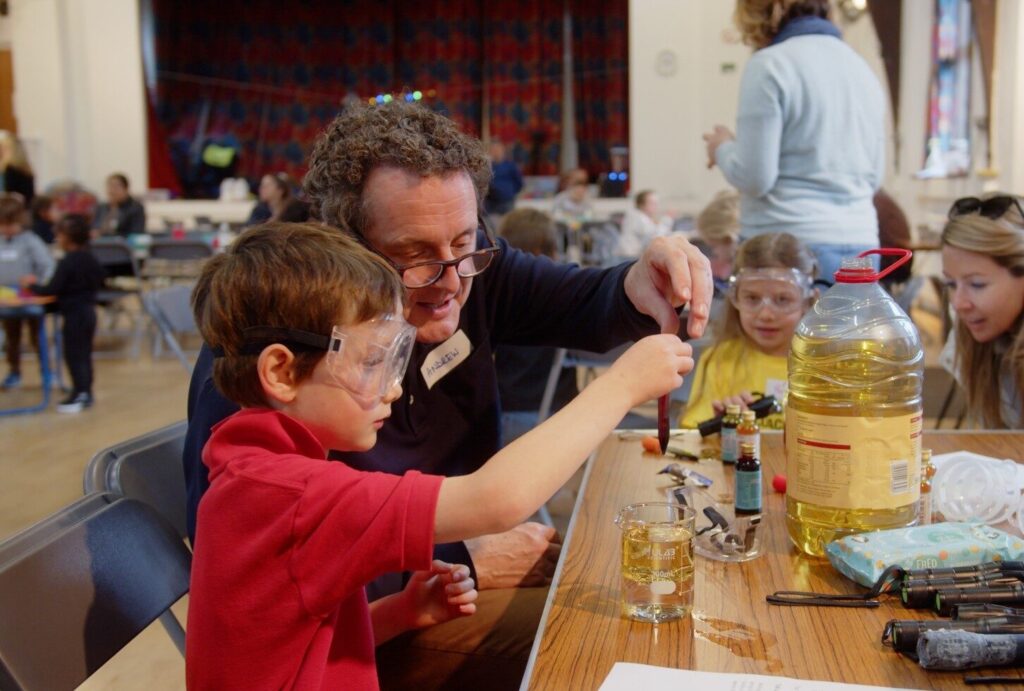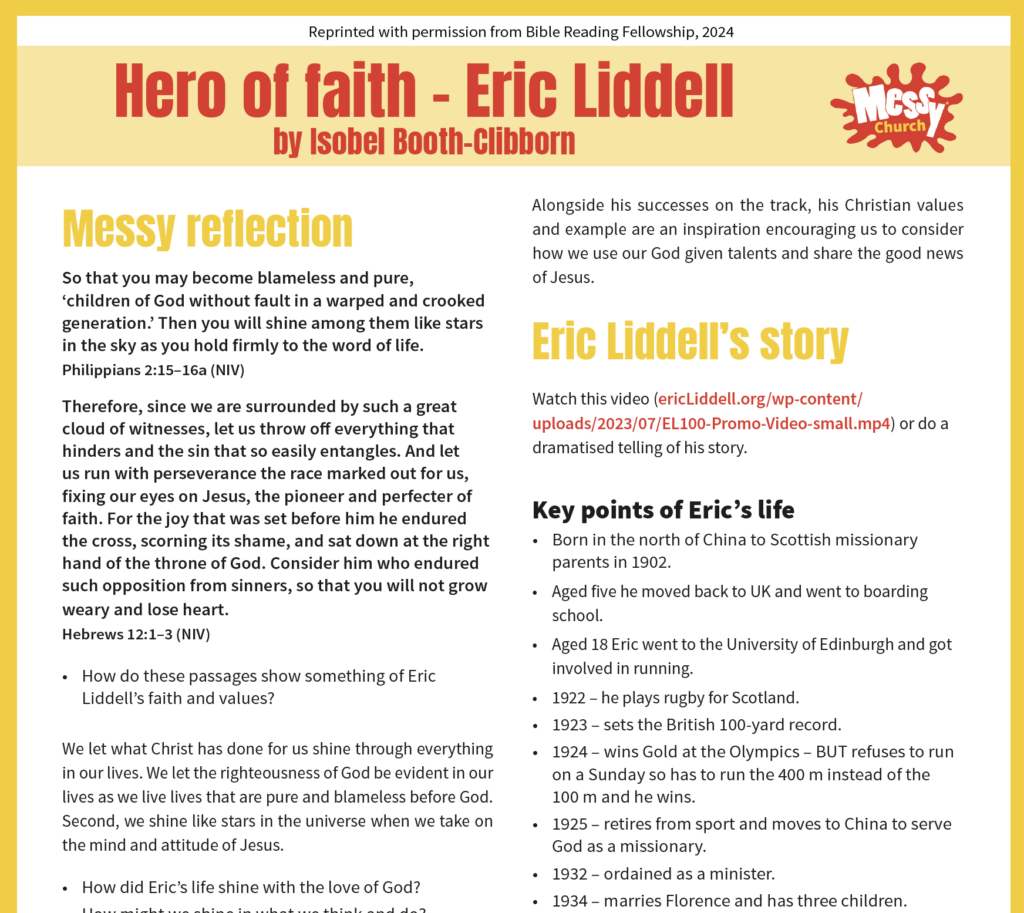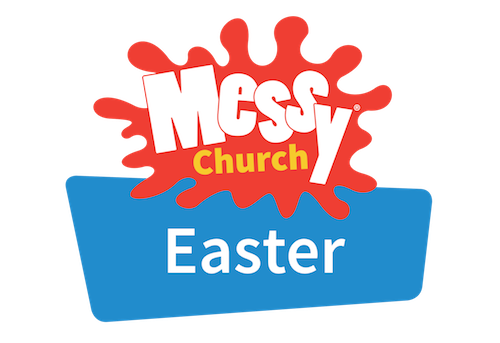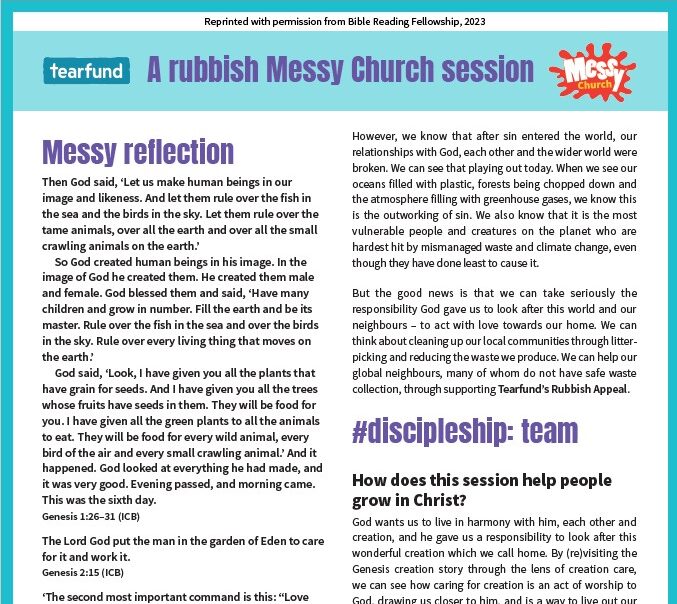Messy Churches have all different types of people coming through their doors. How do you make sure that you welcome every member equally and are accommodating to all people, including those with SEND?
Trish Hahn, the Messy Church SEND coordinator, has put together a ‘Maximising the Mess’ guide for welcoming people with additional needs.
How do we welcome people with additional needs?
- Welcome every member of the family, whether or not they have additional needs.
- Look beyond the disability and see the child, teen or adult. Enjoy the uniqueness of each person and look for Christ in them.
- Speak directly to the person as well as to their carer. Get down to their height level, if you can, especially if they are in a wheelchair. Some guests may feel uncomfortable with direct eye contact, but may still be listening to you.
- Sensitively seek advice from parents/carers as to how you can offer assistance. Any assistance you give should be offered, not forced.
- Use of a picture timetable is a great inclusive resource for those guests who like routine and who like to know what activities are happening now and next. Picture timetables are also a functional communication tool for those guests who are non-verbal or have limited speech.
- Keep your language simple and concise.
- Consider providing additional support to enable guests to access the activities more fully, rather than taking over an activity for somebody with additional needs.
- Be accommodating of what you would consider unusual behaviour or noises. Allow guests the opportunity to voice their opinions/preferences as much as they are able. Allow time and space for a personal response if you have asked a question.
- Surprises may not be welcome: consider whether some individuals may need preparing for something unexpected that breaks the routine, especially sudden loud noises.
- Some parents/carers and siblings may feel lonely or isolated due to their personal circumstances. Be slow to speak and quick to listen.
- It is important to be discreet and confidential about all families when talking outside your Messy Church sessions.
We’d love to hear your stories, so why not tell us on Facebook or Twitter?





